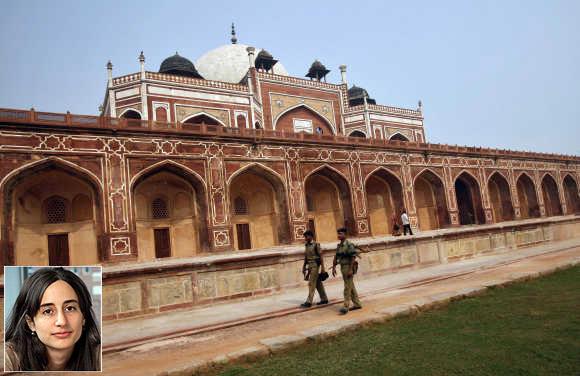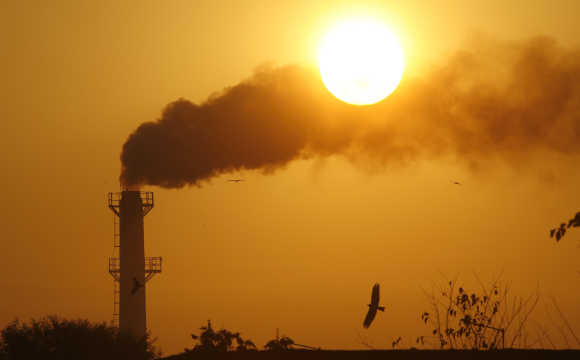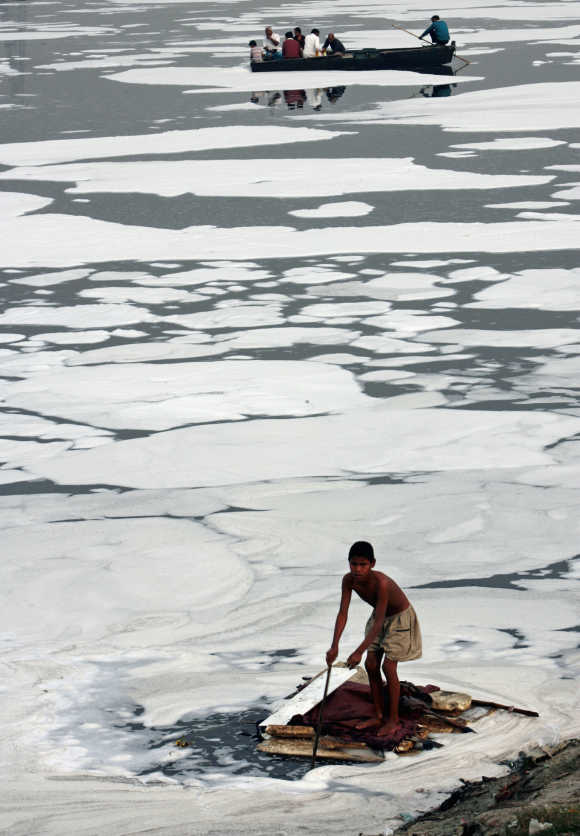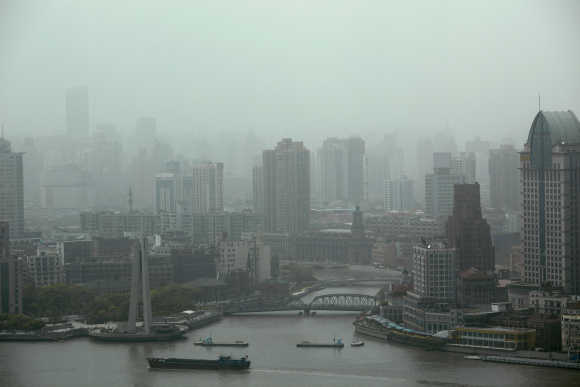Photographs: Adnan Abidi/Reuters Faisal Kidwai in Mumbai
India is struggling to clean up its polluted rivers due to lack of coordination and focus, says Rema Hanna, Associate Professor of Public Policy, Harvard Kennedy School.
Hanna, who is also a member of the Evidence for Policy Design research program at the Center for International Development, Harvard University, and Research Associate with the National Bureau of Economic Research, says air pollution has fallen across the country.
There needs to be rigorous implementation of programmes and polices, she tells Faisal Kidwai in an email interview.
Here are the excerpts:
You and Massachusetts Institute of Technology's Michael Greenstone have conducted research on air and water pollution in India. In that study, you have said that air pollution has fallen in India. Could you tell us the reasons behind this decline in air pollution?
There can be many different reasons for the change, but our work has shown that the policies we studied have contributed to the fall in air pollution levels.
...
Good news: Air is cleaner. Bad news: Water still dirty
Image: Smoke rises from chimney of a garbage processing plant on the outskirts of Chandigarh.Photographs: Ajay Verma/Reuters
After studying more than 400 Indian cities, you did not find much change in water pollution. Why do you think India is struggling to clean up its water?
Our study was more focused on carefully understanding whether or not there was an effect of the water pollution policies. In the end, we did not find much of an effect.
It is hard for us to say definitively why, but we believe that part of the problem is a lack of coordination and focus on the problem. We hope our future work can provide more insight into this.
...
Good news: Air is cleaner. Bad news: Water still dirty
Image: A boy looks for recyclable items in the polluted waters of the Yamuna river in New Delhi.Photographs: Rupak De Chowdhuri/Reuters
There are a number of laws, government organisations and regulations to monitor and reduce pollution, but not much movement. Where do you think are the shortcomings?
We found substantial effects of government regulation on air pollution, which I think is important to highlight. I am not fully sure why we did not find an effect for water pollution - our work is more focused on trying to understand if there was an effect at all. But, this is something that we hope to study more in the future.
...
Good news: Air is cleaner. Bad news: Water still dirty
Image: A man looks out of his auto rickshaw as he drives through foam overflowing from a drain outside a factory in Ahmedabad.Photographs: Amit Dave/Reuters
In your research, you have alluded to environment's impact on healthcare. What are the major impacts on air and water pollution on health?
Pollution can affect health in many ways. There's a growing body of research that documents the effects on respiratory diseases, infant mortality, and so forth.
Moreover, there is recent evidence that high levels of air pollution leads to worker absenteeism (due to illness) and reduced test scores for children.
...
Good news: Air is cleaner. Bad news: Water still dirty
Image: A view of downtown Shanghai on a hazy day.Photographs: Carlos Barria/Reuters
If we look at the broader picture, the world as a whole is struggling to reduce pollution. The developed world wants the developing countries to reduce emissions, while the latter blames the former for the increase in greenhouse gases. What is the way forward to slowdown climate change?
This is a difficult question to answer, and I am not sure I am the right person who should be answering it. But, in the end, I think whatever policies and programmes we do put in place need to be rigorously evaluated in order to know if they actually had the intended results. Our goal was to try to offer information on this.






article